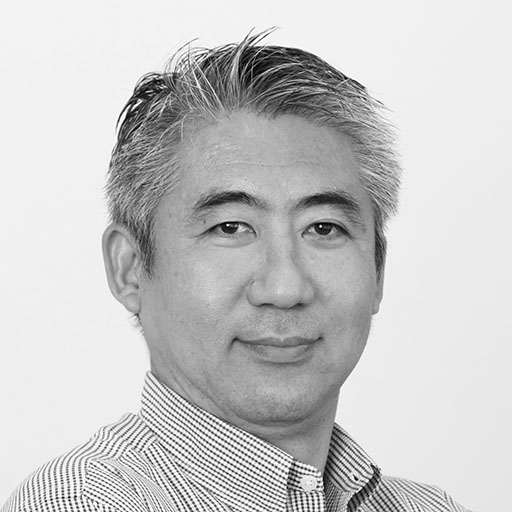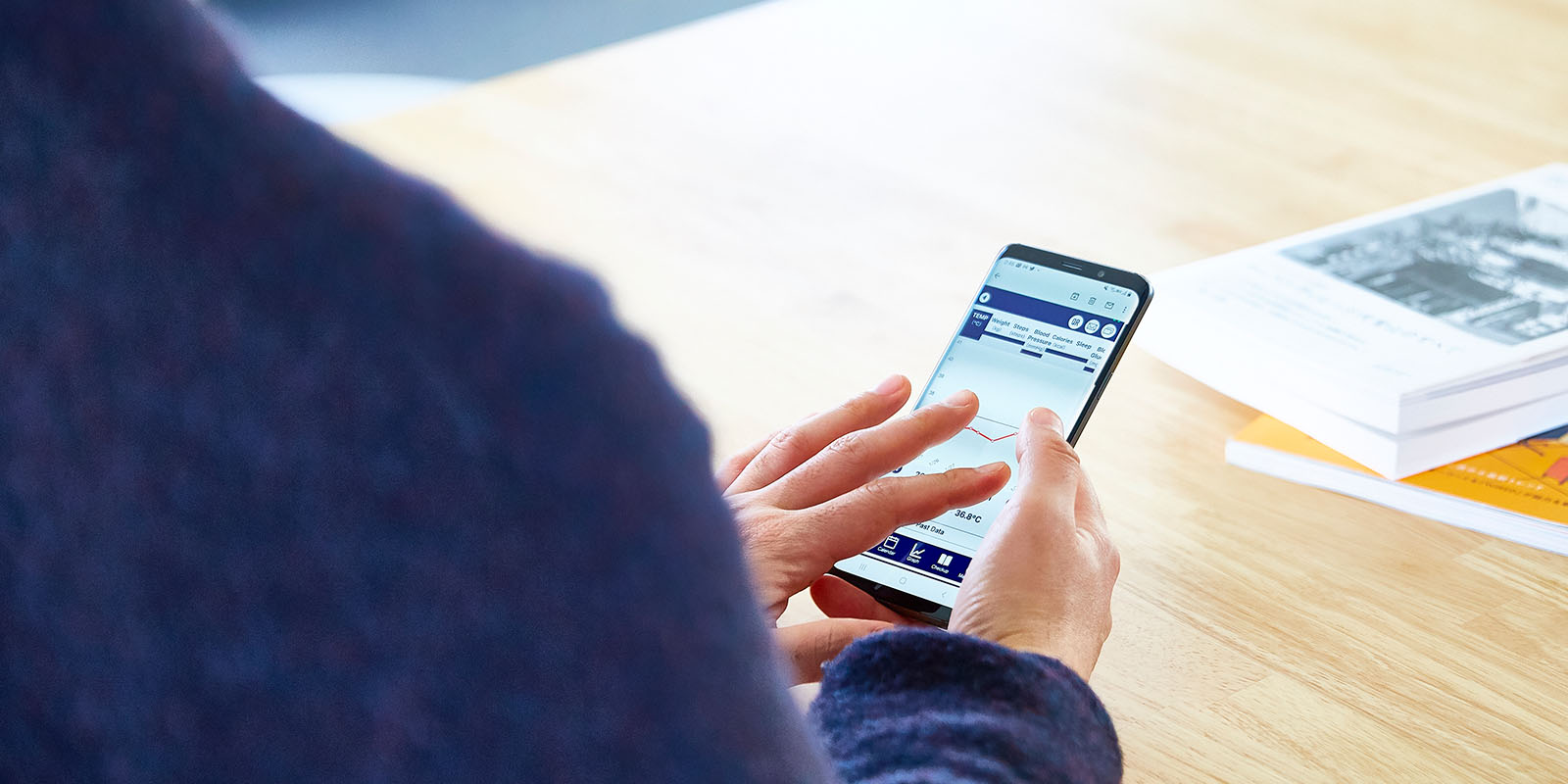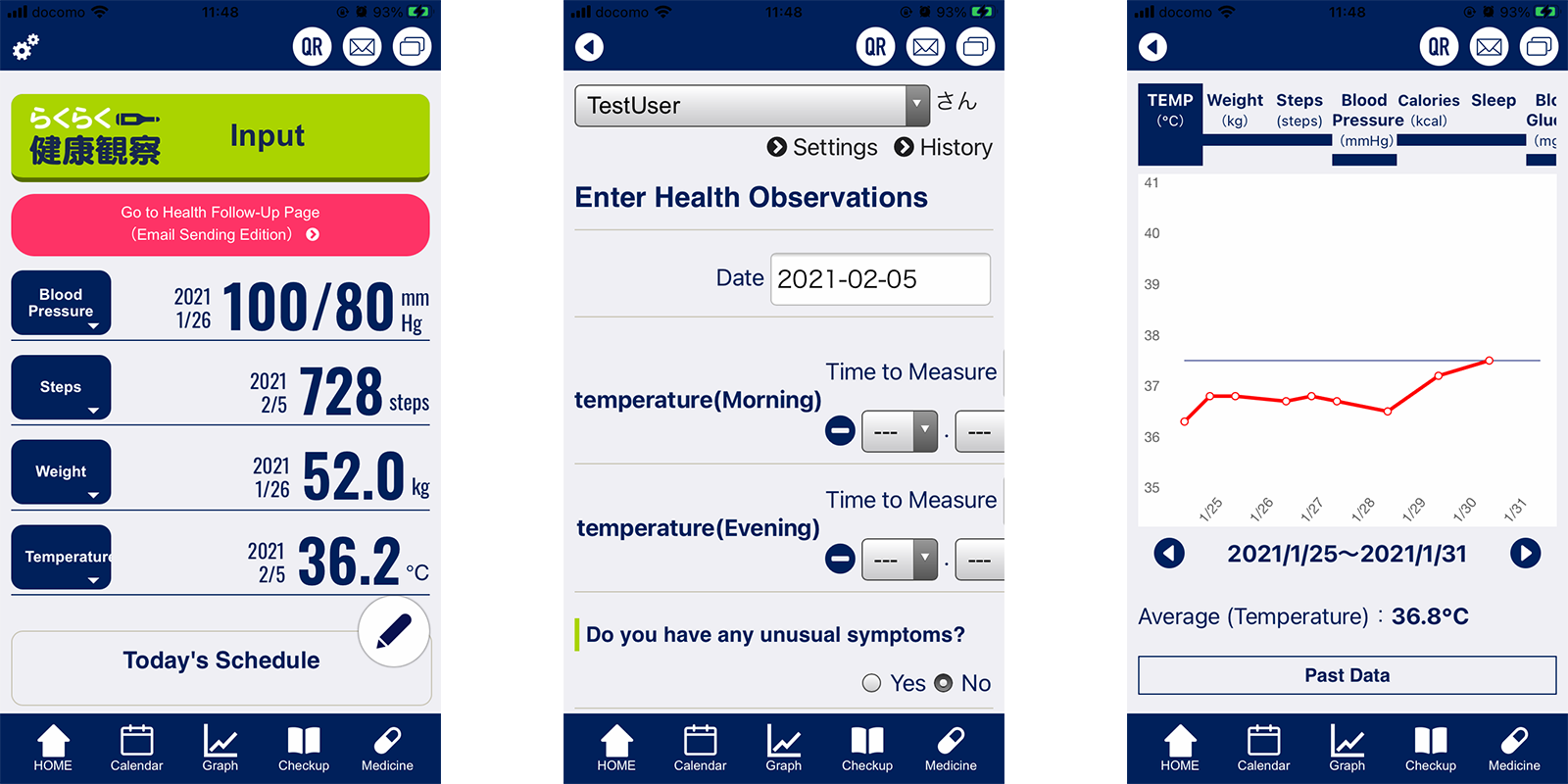Dear Diary
Tatsuya Abe, president of Health Tech Lab, talks to Noriko Maniwa about how his Kenkou Nikki app could help combat Covid and allow for safe mass events in the future

Tatsuya Abe is the president of Health Tech Lab Inc, a Japanese company at the forefront of personal health records (PHR) technology – and the developers of an app which might be critical in helping future cultural and sporting events take place safely. The company’s innovative Kenkou Nikki (“Health Diary”) app has a simple name and simple interface – it’s been designed so that even people who aren’t very comfortable with smartphones will find using it a breeze.
The app, which was created in collaboration with Kyoto University and a series of research partners, was launched in March 2020 and has now been downloaded more than 60,000 times. We spoke to Tatsuya Abe about the app…
How does the app work?
“Users input their weight, blood pressure, and other metrics including temperature and physical condition, and Kenkou Nikki automatically gathers additional data such as the number of steps users are taking. It can also record personal health data such as hospital visits and exercise records, as well as patient registration card images.”
“Having all this data available digitally makes it easy for health centers to take an overall real-time view of the health of the populations they look after. It also allows them to see, chronologically, how Covid-19 symptoms present in patients. Based on the data the health centers are now able to immediately arrange PCR swab tests for Covid-19 and book in hospitalisation if needed.”
 © Kisa Toyoshima
© Kisa Toyoshima
Why has takeup of the app proved to be so strong during the pandemic?
“In the early stages of the Covid-19 pandemic, the health centers would make phone calls to get in touch with people who had been in close contact [with Covid-19 patients]. They would record what they were told on paper. But after a while there was insufficient manpower to keep doing this. By sharing PHR through the Kenkou Nikki app, I believe health observation could be managed more smoothly. When it comes to Covid-19, overlooking just one infected person will create another cluster of infections. The sharing of PHR may carry some risks, but using it properly will allow us to protect the whole community. The current situation of the disease spreading in the community is dire, but what’s done is done. I hope the app will help us stop the spread.”
What happens to the user data entered on the app?
“Individual data registered on Kenkou Nikki is transmitted to schools, companies,municipalities, and other organizations with a single click, enabling managers to check the health status of all members in one place on the ‘Easy Health Monitoring’ cloud-based service. The system can also be used to review and analyze accumulated data, and since the data format is consistent, it can also be used for nationwide analysis such as the identification of infection routes.”
 Screenshots and Tatsuya Abe portrait image © 2021 HealthTech.Lab Inc
Screenshots and Tatsuya Abe portrait image © 2021 HealthTech.Lab Inc
How can the app help with making events more secure?
“You can easily record your health condition after attending or participating in events – observation takes place for 14 days, which is the incubation period of the virus – and share the recorded details with officials. Using an app such as Kenkou Nikki to check for changes in individuals’ physical condition and virus status can help infection measures at the venues run more efficiently.”
What are your company’s future goals?
“We want to establish a Lifelong Personal Health Record Platform. Until today, in Japan, our lifelong health and medical data have been separated. If we can easily arrange our lifelong data chronologically, then manage and review it in a portable way, our communication with health care workers will become smoother, enabling more effective diagnosis and treatment.”
Having all this data available digitally makes it easy for health centers to take an overall real-time view of the health of the populations they look after